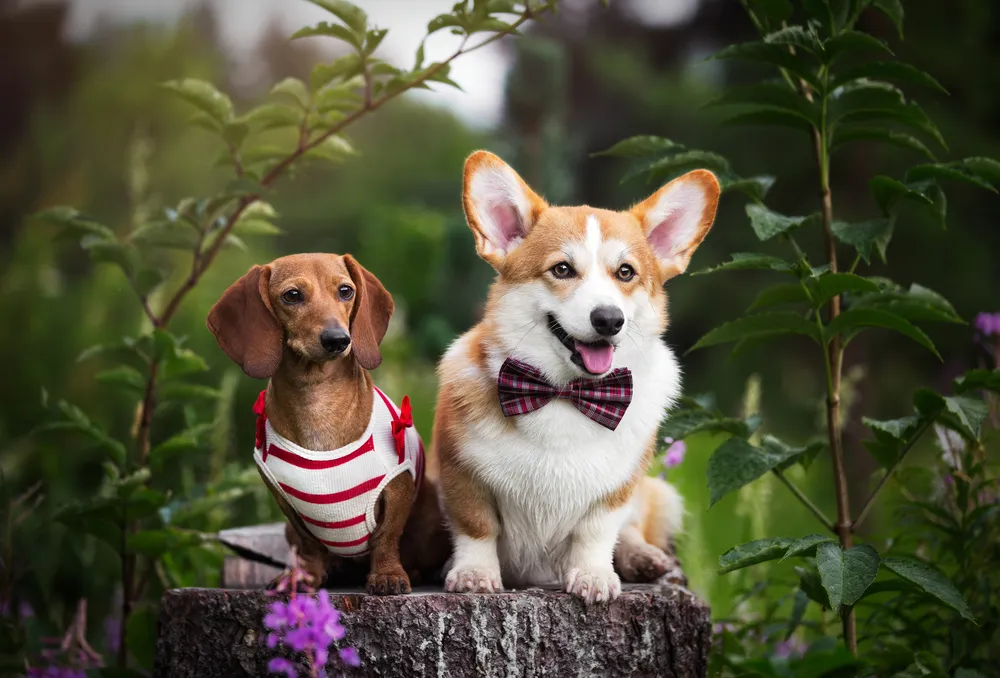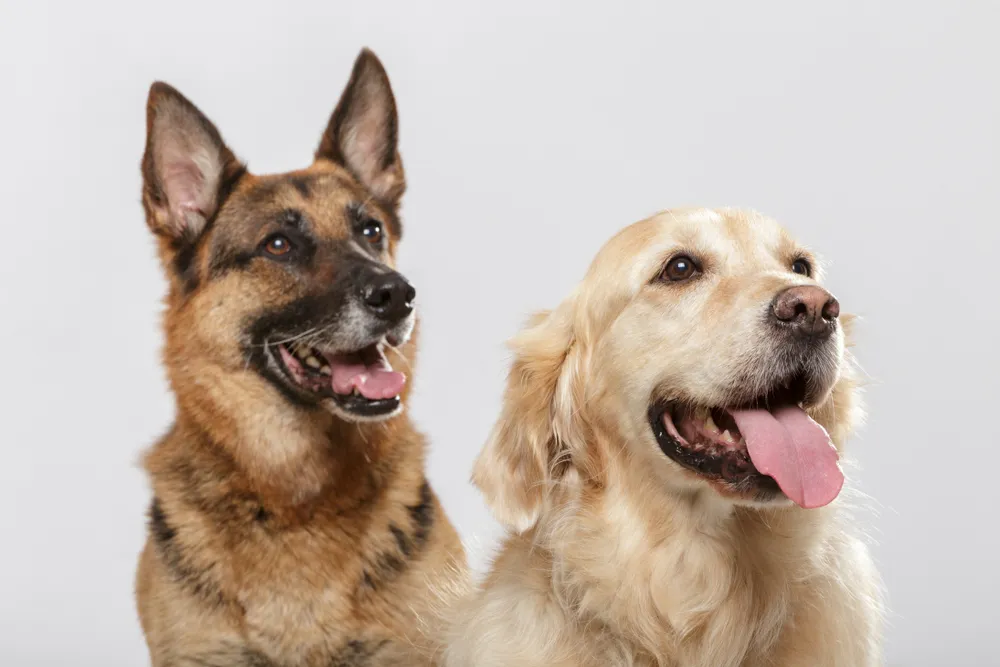Golden Retrievers are renowned for their boundless affection, gentle nature, and unwavering loyalty, making them a top choice for families and individuals alike. Their inherent kindness extends to other animals, but finding the ideal companion to share your life with your Golden requires careful consideration. While Golden Retrievers generally coexist harmoniously with most breeds, certain pairings can foster even greater peace and mutual enjoyment. This guide explores the finest canine companions that complement the Golden Retriever’s amiable disposition, ensuring a thriving multi-dog household.
The foundation of any successful dog pairing lies in understanding their individual temperaments and social dynamics. While breed compatibility is a significant factor, so too are individual personalities and past experiences. When introducing a new dog to a Golden Retriever, remember that socialization and consistent training play a crucial role in shaping their relationship. Prioritizing these aspects will pave the way for a lasting bond.
Understanding Dog Compatibility: Key Factors
Before delving into specific breed recommendations, it’s essential to grasp the fundamental elements that influence canine compatibility. Two primary considerations often arise when introducing new dogs into a home:
Breed Similarities and Differences
While this article focuses on complementary pairings, it’s worth noting that dogs of the same breed often share an innate kinship. They recognize each other as belonging to the same group, which can lead to easier acceptance. When adding a puppy to a household with an adult dog of the same breed, the resident dog is generally more likely to welcome the newcomer.
Gender Dynamics
The sex of the dogs involved can significantly impact their compatibility. As a general rule, a male and female pairing tends to result in the most harmonious relationships. If you have an adult male Golden Retriever, introducing a female puppy is often recommended. Conversely, two males can sometimes experience more territorial friction, followed by two females, although these dynamics are not absolute. Many households successfully manage multiple dogs of the same sex, but understanding these predispositions can help preempt potential challenges.
Golden Retrievers: A Companion’s Best Friend
Golden Retrievers are celebrated for their gentle, patient, and affectionate personalities. Their calm demeanor makes them exceptional with children and other pets. This inherent sociability means they are generally accepting of new canine companions, whether you’re adding a puppy to your existing Golden Retriever or introducing a second dog to a home with an adult Golden. The breed’s adaptability allows them to thrive alongside a wide spectrum of other dogs, from more robust breeds like the Rottweiler to delicate ones like the Italian Greyhound. The presence of a Golden Retriever in your home often acts as a natural peacekeeper, fostering a calm and harmonious environment.
To truly enhance the companionship for your Golden Retriever, consider these highly compatible breeds:
Top Dog Breeds to Pair with a Golden Retriever
Labrador Retriever: The close cousin of the Golden Retriever, the Labrador shares a similar friendly and outgoing nature. Their enthusiasm and willingness to please make them excellent playmates and companions. Both breeds possess high energy levels, making them ideal for active households.
 A Golden Retriever and Labrador Retriever playing together in a grassy field
A Golden Retriever and Labrador Retriever playing together in a grassy fieldSpaniel Breeds (Cocker Spaniel, Cavalier King Charles Spaniel, English Springer Spaniel, etc.): Spaniels, known for their cheerful disposition and moderate energy, often blend seamlessly with the Golden Retriever’s temperament. Their playful yet gentle nature makes them amiable companions.
Beagle: Beagles are curious, friendly, and enjoy being part of a pack. Their playful antics and generally amiable nature make them a good match for the Golden Retriever’s outgoing personality.
German Shepherd: While German Shepherds can be more dominant, their intelligence and loyalty, when properly socialized and trained, can lead to a strong bond with a Golden Retriever. It’s often recommended that the German Shepherd be female if paired with a male Golden Retriever to potentially mitigate any power struggles.
Pugs: These small, charming dogs possess a playful spirit and a desire for companionship. Their relatively low exercise needs and affectionate nature can complement the Golden Retriever’s stable temperament, though it’s crucial to manage interactions carefully due to the size difference.
Goldendoodle: A hybrid breed combining the Golden Retriever and Poodle, Goldendoodles inherit many of the Golden’s desirable traits, including their friendly and eager-to-please nature. This breed is a natural fit for a Golden Retriever’s social circle.
Boston Terrier: Known for their charming personalities and moderate energy levels, Boston Terriers are adaptable and enjoy companionship. Their playful spirit can engage a Golden Retriever, creating a dynamic duo.
Poodle: Poodles, whether Standard, Miniature, or Toy, are highly intelligent and adaptable. Their playful and affectionate nature makes them excellent companions for Golden Retrievers, fostering a stimulating and enjoyable relationship.
Rottweiler: While Rottweilers have a reputation for being strong, their inherent loyalty and protectiveness, when channeled positively through training and socialization, can create a surprisingly strong bond with a Golden Retriever. As with German Shepherds, a female Rottweiler paired with a male Golden Retriever might be a more harmonious arrangement.
When introducing any new breed, especially one known for protective instincts like a German Shepherd or Rottweiler, early socialization and training are paramount. Teaching puppies how to respect each other, especially if one exhibits more assertive behavior, will set the stage for a healthy long-term relationship. The Golden Retriever’s sheer size, as it matures, can sometimes be intimidating to very small breeds, so mindful supervision is always advised.
Exploring Other Great Companions
Beyond breeds that share similar temperaments, other breeds offer unique qualities that make them excellent partners for a Golden Retriever. These pairings often highlight how diverse personalities can create a balanced and enriching environment.
Labrador Retrievers: The Energetic Counterpart
Labrador Retrievers stand shoulder-to-shoulder with Golden Retrievers in popularity for family dogs, celebrated for their friendliness and trainability. Labs possess a boundless energy and a keen desire to engage in activities, making them a vibrant addition to an active household. Their exuberance, while different from the Golden Retriever’s more laid-back approach, can create a playful and stimulating dynamic. A Labrador’s cheerful and inquisitive nature makes them adaptable to various companions.
Pembroke Welsh Corgis: The Spirited Manager
Pembroke Welsh Corgis, despite their diminutive stature, are known for their spirited and assertive personalities. They are often the “house managers,” ensuring that rules are followed. While a Corgi might assert their authority, they typically do so when boundaries are crossed. Matching a Corgi with a gentle and understanding breed like a Golden Retriever can work well, especially if the Corgi is accustomed to sharing and respecting the space of other animals.
 A Pembroke Welsh Corgi and a Golden Retriever interacting positively
A Pembroke Welsh Corgi and a Golden Retriever interacting positively
Bichon Frise: The Affectionate Lap Dog
The Bichon Frise, with its intelligent, personable, and friendly disposition, is a breed that thrives on affection and companionship. Their sweet nature makes them generally agreeable with other dogs and animals. Given their delicate size, it’s often recommended to pair a Bichon Frise with other small companion breeds. However, their amiable character means they can also coexist harmoniously with larger, gentle breeds like Golden Retrievers or Labrador Retrievers, especially when showered with ample love and attention.
The key to a successful multi-dog household, regardless of breed pairings, is consistent training, positive reinforcement, and ensuring each dog receives adequate individual attention. With thoughtful planning and a commitment to understanding your dogs’ needs, you can create a loving and harmonious environment for your Golden Retriever and their new best friend.
Finding the perfect canine companion for your Golden Retriever is a rewarding journey. By understanding breed characteristics, considering individual temperaments, and prioritizing socialization, you can cultivate a lifelong friendship for your beloved pet.

